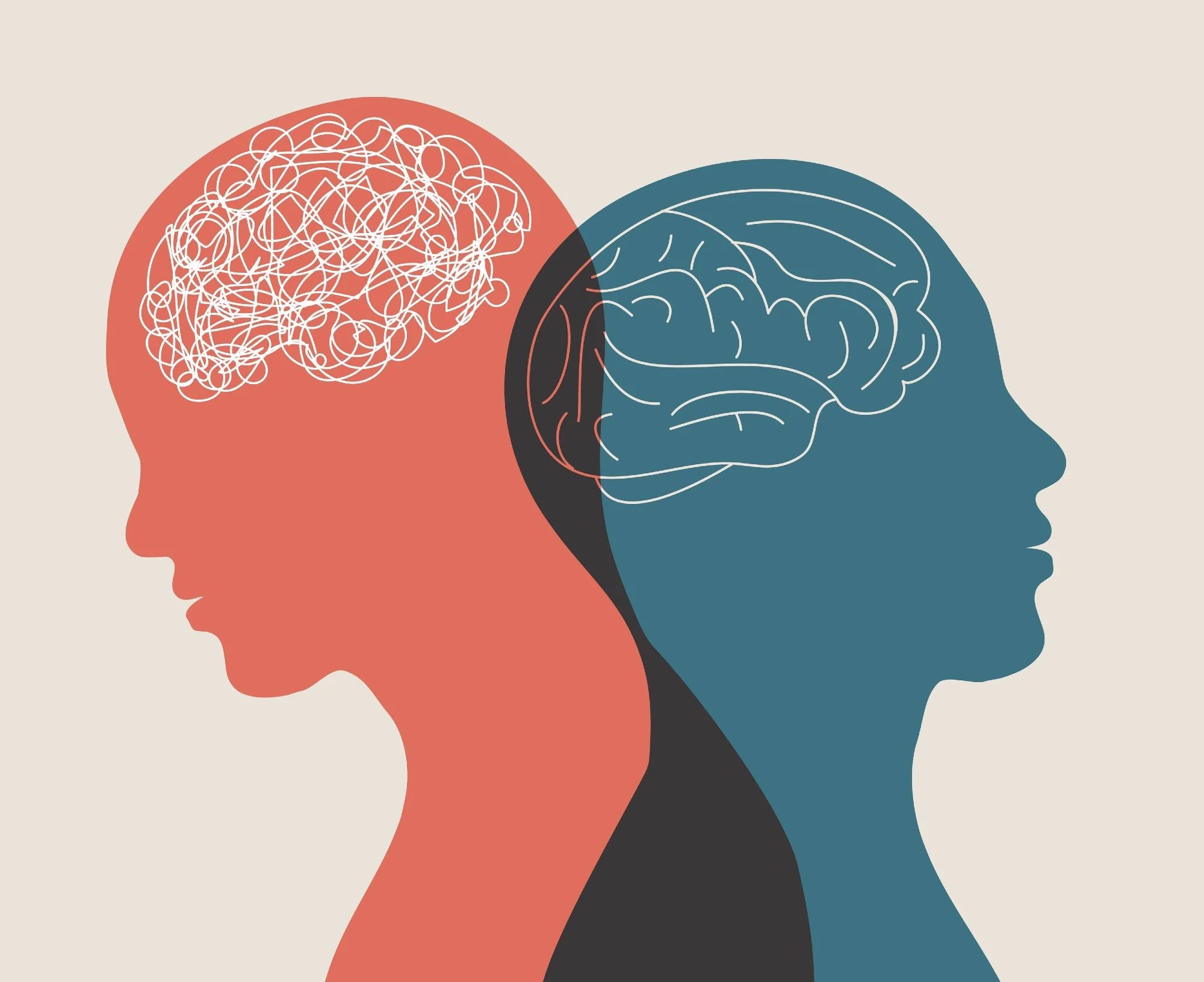Welcome to our blog post on mental health recovery housing! In this article, we will explore the incredible benefits of these specialized facilities and how they provide a much-needed place for homeless individuals to recover from mental illness.
We’ll also share heartwarming success stories that demonstrate the transformative power of these programs. And if you’re looking to make a difference in your community, we’ve got some great ways for you to get involved too! So let’s dive in and discover how ohio recovery housing is changing lives for the better.
Mental health recovery housing provides a place for homeless people to recover from mental illness
Mental health recovery housing is a lifeline for those experiencing homelessness and struggling with mental illness. These specialized facilities offer more than just a roof over their heads; they provide a safe, supportive environment where individuals can heal and rebuild their lives.
One of the key benefits of recovery housing is the emphasis on holistic care. Residents not only receive stable housing but also have access to an array of support services tailored to their specific needs. This could include mental health counseling, substance abuse treatment, life skills training, employment assistance, and more. By addressing all aspects of an individual’s well-being, these programs increase the chances of long-term success in managing their mental health.
Another vital aspect of recovery housing is its sense of community. It creates a space where residents can connect with others who have similar experiences and challenges. This peer support fosters empathy, understanding, and camaraderie among residents as they navigate their journey towards recovery together.
Moreover, recovery housing provides structure and stability that may have been lacking in the lives of homeless individuals battling mental illness. Daily routines are established to promote healthy habits such as regular sleep patterns and proper nutrition. Additionally, staff members are available round-the-clock to ensure safety and provide ongoing guidance.
By offering this comprehensive approach to healing within a supportive community setting, mental health recovery housing gives hope to those who might otherwise feel trapped by homelessness and mental illness. It provides them with an opportunity to regain control over their lives while rebuilding self-esteem and confidence along the way.
In our next section, we will delve into some inspiring success stories from individuals who have benefited from mental health recovery housing programs firsthand! Stay tuned for stories that highlight resilience, transformational journeys towards wellness, and renewed possibilities for a brighter future.
What are the benefits of mental health recovery housing?
Mental health recovery housing plays a crucial role in providing support and stability for individuals experiencing homelessness who also struggle with mental illness. There are numerous benefits associated with this type of housing, which go beyond just having a safe place to live.
Recovery housing offers a structured environment that promotes healing and growth. Residents have access to counseling services, therapy programs, and other resources tailored specifically to their needs. This level of support helps individuals develop coping skills and regain control over their lives.
Additionally, living in recovery housing fosters a sense of community among residents. Social isolation is common among those dealing with mental health issues, but being part of a supportive network can make all the difference. The shared experiences and understanding within these communities create an atmosphere of acceptance and encouragement.
Moreover, mental health recovery housing provides access to essential resources such as job training programs or educational opportunities. These resources empower individuals to reintegrate into society successfully by gaining employment or pursuing further education.
Furthermore, one significant benefit is the reduction in hospitalization rates for those living in recovery housing compared to homeless individuals without stable accommodations. Having a safe place to call home lowers stress levels and enhances overall well-being, leading to fewer crisis situations that require emergency medical intervention.
In conclusion,
mental health recovery housing offers numerous benefits for homeless individuals struggling with mental illness. From providing structure and support for healing to fostering community connections and offering essential resources – the impact on individual lives cannot be overstated.
How can you get involved in mental health recovery housing?
Getting involved in mental health recovery housing is a wonderful way to make a difference in the lives of homeless individuals struggling with mental illness. There are several ways you can contribute and support these initiatives.
Volunteering your time is one effective way to get involved. Many recovery housing programs rely on volunteers to assist with various tasks such as organizing activities, providing transportation, or simply offering companionship and support to residents. By volunteering, you can directly impact the lives of those recovering from mental illness and help create a supportive environment for their healing journey.
Another way to contribute is by donating resources or funds. Recovery housing programs often require financial assistance to cover operating costs and provide essential services for residents. Contributing financially can help ensure that these programs continue running smoothly and effectively.
Additionally, spreading awareness about mental health recovery housing is crucial in garnering support from the community. This could involve sharing information through social media platforms, organizing awareness events or fundraisers, or even hosting educational workshops on topics related to mental health and homelessness.
By getting involved in mental health recovery housing, you have the opportunity to be part of positive change in someone’s life. Your contribution – whether it’s your time, resources, or advocacy efforts – can make a significant impact on individuals who are striving towards recovery from mental illness while also experiencing homelessness.
Success stories from mental health recovery housing
Success stories from mental health recovery housing highlight the transformative impact these programs can have on individuals’ lives. One such story is that of Sarah, who had battled severe depression and homelessness for years. When she entered a mental health recovery housing program, she found herself surrounded by a supportive community and access to essential resources.
Through therapy, medication management, and peer support groups, Sarah began to rebuild her life. She regained stability in her mental health and developed valuable coping skills. With assistance from the program’s staff, Sarah was able to secure stable employment and eventually transition into independent living.
Another inspiring success story is that of Michael, who struggled with addiction alongside his mental illness. In a mental health recovery housing program focused on dual diagnosis treatment, Michael received comprehensive care addressing both his substance abuse issues and his psychiatric needs. Through counseling sessions and participation in group activities tailored to his interests, he gained motivation to overcome his challenges.
These success stories demonstrate how mental health recovery housing creates an environment conducive to healing and growth. By providing safe accommodation combined with specialized support services, individuals are empowered to take control of their lives again.
Every person’s journey toward recovery is unique; however,
mental health recovery housing offers hope for those experiencing homelessness due to their psychiatric conditions or co-occurring disorders.
It provides them with not only a place where they can find shelter but also the necessary tools they need for long-term healing.
By supporting organizations that offer these programs,
you can make a meaningful difference in someone’s life
and contribute towards building healthier communities overall
Conclusion
Conclusion
Mental health recovery housing plays a vital role in providing a safe and supportive environment for homeless individuals to recover from mental illness. The benefits of these specialized facilities are numerous, including access to therapy and counseling services, stable housing, peer support networks, and opportunities for personal growth and development.
If you’re looking to get involved in the important work being done through mental health recovery housing, there are several ways you can make a difference. Consider volunteering your time or skills at a local facility, donating resources or funds to support their programs, or advocating for increased funding and awareness of this vital service.
The success stories that have emerged from mental health recovery housing are truly inspiring. Individuals who were once trapped in cycles of homelessness and despair have found hope, stability, and renewed purpose through these programs. By offering compassionate care and empowering individuals on their journey towards recovery, these facilities are making a lasting impact on the lives of those struggling with mental illness.
In conclusion (without using the phrase!), let us recognize the importance of mental health recovery housing as an essential component in addressing homelessness among individuals facing mental illness challenges. With continued support from communities like yours – whether it be through volunteering your time or resources – we can help provide more success stories while creating a brighter future for everyone involved.












Leave a Reply